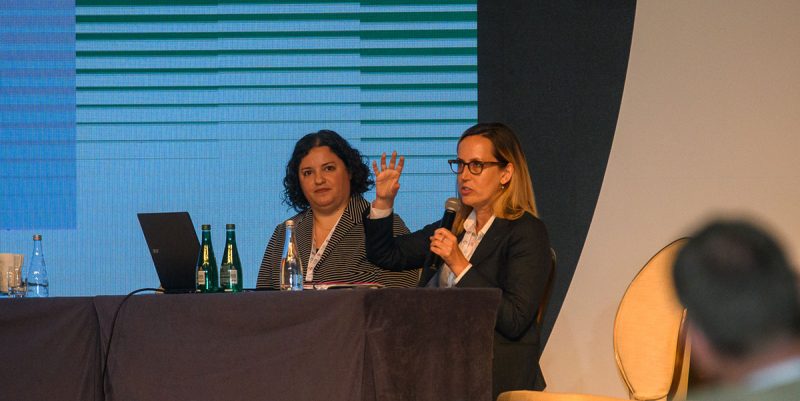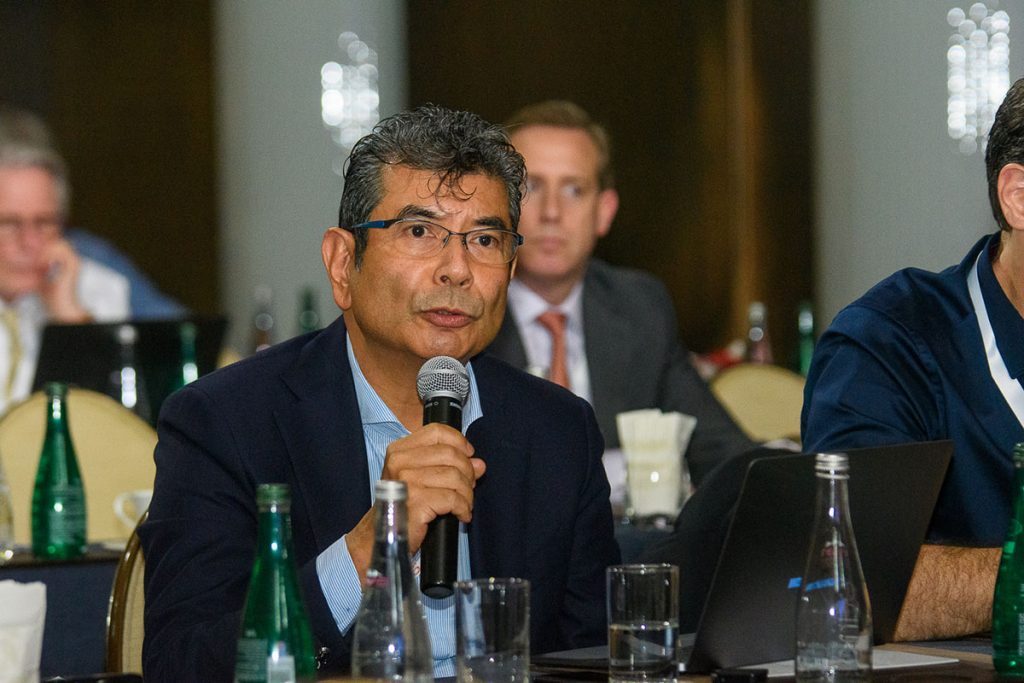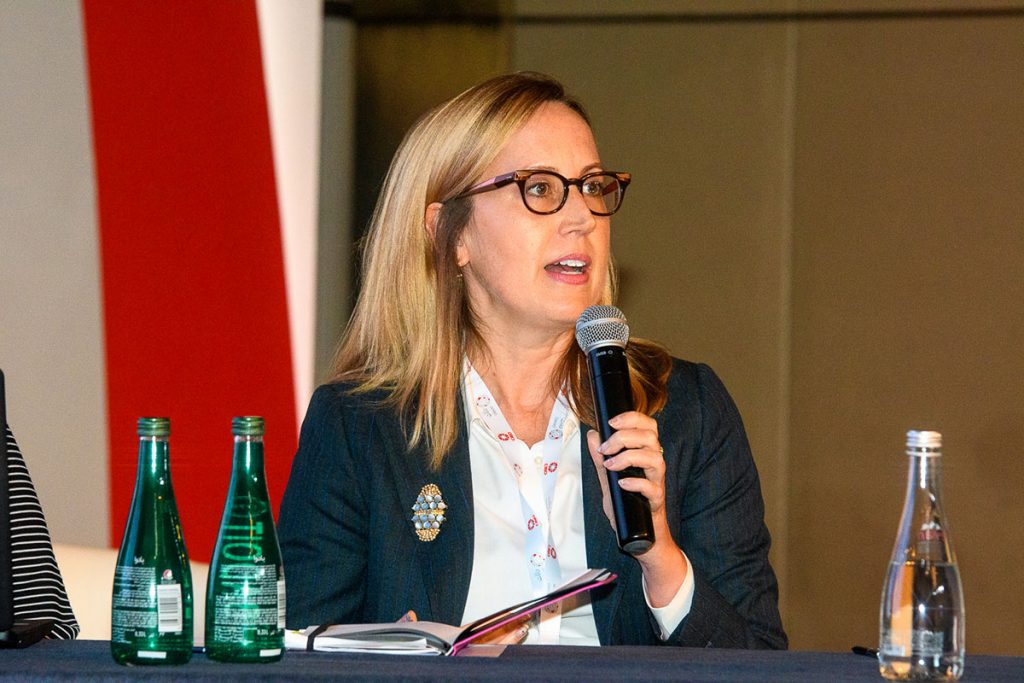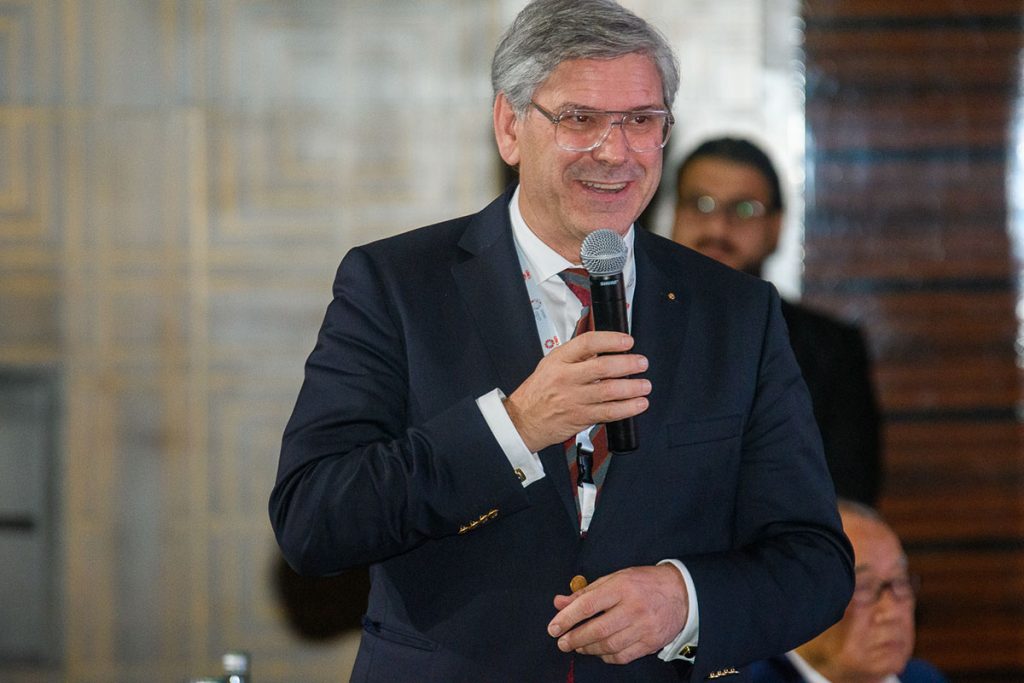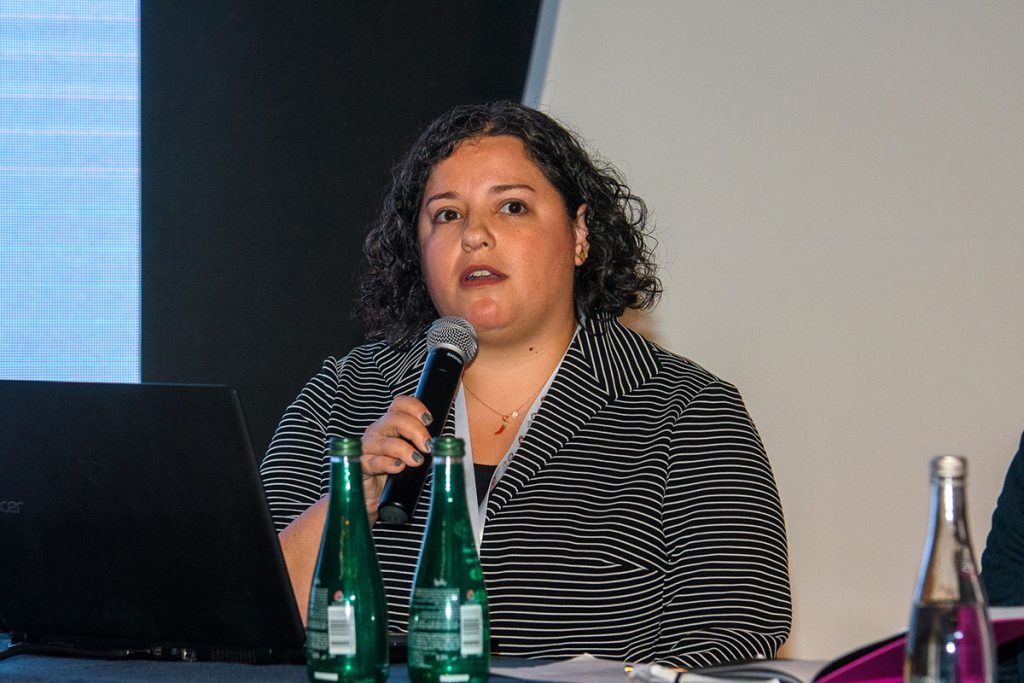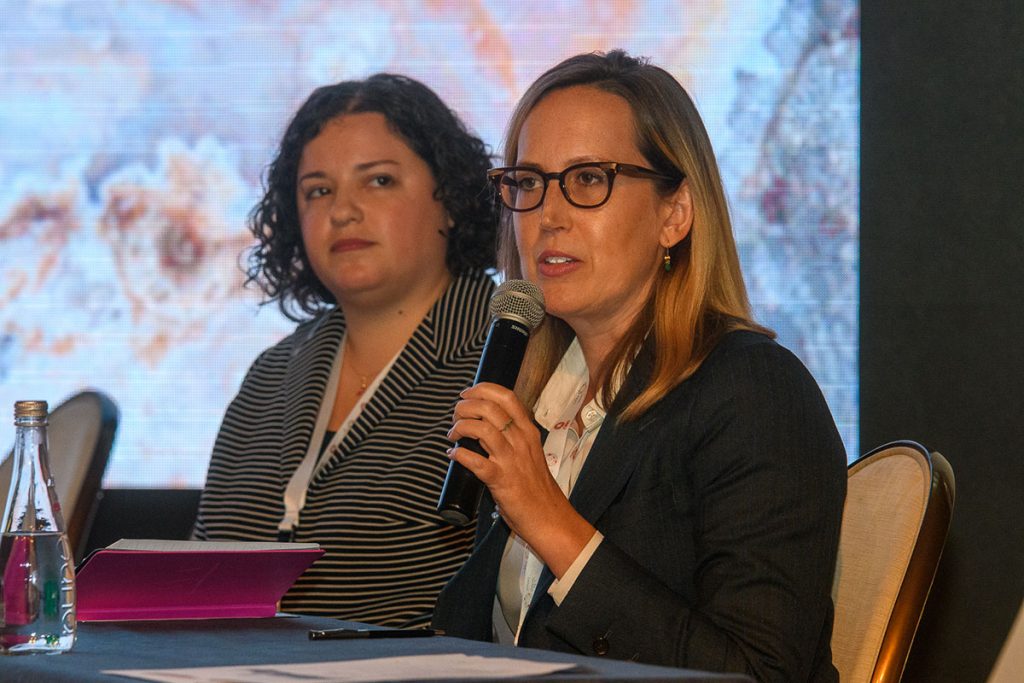ABOVE: Ethics Commission President Tiffany Stevens making a point during the body’s meeting at the CIBJO Congress on November 20. To her left is Sara Yood, senior legal counsel at the Jewelers Vigilance Committee in the United States.
NOVEMBER 20, 2019
CIBJO Ethics Commission President Tiffany Stevens, who also serves as President and CEO of the Jewelers Vigilance Committee (JVC) in the United States, and Sara Yood, the JVC’s senior legal counsel, led the body’s session at the 2019 CIBJO Congress in Bahrain on November 19, providing a comprehensive update on ethical behaviour in trading, and concerns about the gold supply chain.
Ms Stevens said that the emphasis on ethical business practices has evolved in the last year or so. There is an increasing reliance on international frameworks and standards, such as the the OECD principles that are referenced the new CIBJO Responsible Sourcing Blue Book, and well as advertising and disclosure standards.
“We hope that when you you speak with your suppliers, press them to ensure you know who they deal with,” she said. “It’s to stay out of trouble in any legal cases, but also to pass on ethical behaviour to the next generation.”
She spoke about detection machines for natural and synthetic diamonds. “It’s good that they are evolving and available, but keep in mind that some people are making machines that are not ethical. So you have to do your homework.”
Ms Stevens spoke about a three-step process for ethical disclosure. First is due diligence of your supply chain, which may or may not include appropriate third-party audits; secondly, comprehensive internal risk assessment based on the findings from the due diligence, thirdly, clear and effective communication on these results to the next party to receive the goods.
Moving on to concerns in the gold supply chain, Ms Yood said there are three main issues: illegal gold mining damaging the environment which is sometimes on protected conservation or indigenous land; illegal gold entering the legitimate supply chain; and the use of mercury in mining processes.
She explained that there have been many stories in the media on the issue. “Some speak of blood gold,” she said, adding that there is widespread use of mercury which is causing health problems.
The artisanal sector is largest emitter of mercury which is resulting in the destruction of natural habitats.
Ms Yood said there are current initiatives addressing the gold issue using traceable gold supply chains. Traceable gold supply chains include Fairmined, Fairtrade, 100% recycled, the CRAFT code which uses the OECD due diligence guidelines, and IMPACT’s Just Gold. In addition, there is the RJC Chain of Custody and the Trustchain and Tracr blockchain systems.
There are many challenges in the gold supply chain. Traceable gold supply can be inconsistent; miners need financial, legal and technical investment to advance; and some countries have halted mining on land lived in by indigenous people altogether. This prevents them from using their own natural resources and sustaining their people.
Ms Stevens said that in the United States there is increased scrutiny by the State Department of the gold supply chain, brought about by a risk that the gold supply chain is being used for money laundering and terrorist financing. Implementation of AML regulations is still inconsistent, she added.
There is no international body dealing with gold supply chain issues, she stated. The JVC is planning a Gold Circle, which will be informal working group that addresses U.S. market issues
Problems in the gold supply chain could possibly be addressed in the Responsible Sourcing and Precious Metals commissions, she stated.


